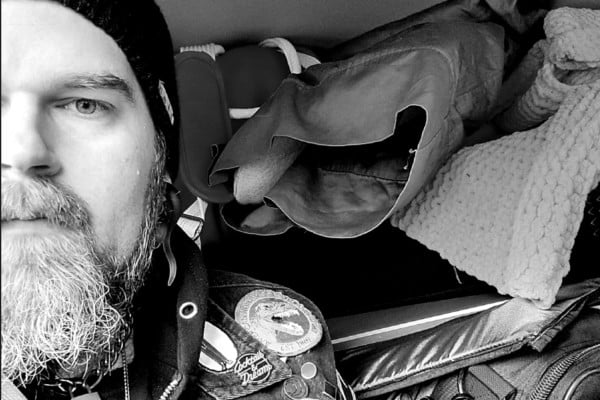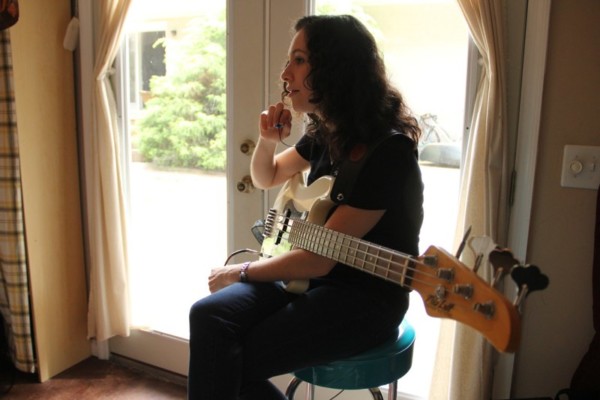How To Transition to Pro Level?

Q: My question is this: how did you transition to a pro level and play concerts vs. playing bars and functions? I have been playing for quite a few years and have played with some very good musicians out of Berklee and local players, but I always dream of stepping up to the next level. I am lucky to find work and always get hired back, but some nights the noisy, booze-soaked club circuit is so depressing. Thanks for your time and sage advise here on No Treble.
A: I feel you my friend. I can remember a seemingly endless few years where I was always asking myself (in a fearful voice) if this was really all that was to be… Would this be as far as I could take it, professionally speaking? Would I always be navigating drunks at gigs, trying to keep people from setting their beers on my rig and getting home at 3am? All for $100?
I have also read many an article where a musical hero talked of similar times in their lives.
There are no guarantees in this business (the arts in general). We do this because we love making music and we only hope that – by elevating the level of our artistry – the world reacts in kind and our situations improve, be it gigging situations, income level, traveling, etc… whatever that looks like for you.
Here are my thoughts… this is what I’ve always believed, and these are the hopes that kept me going when things seemed a little dark in my gigging life.
1. The cream rises to the top:
This isn’t always true, of course. There are some world class players who never get recognized outside of their part of town and there are some pretty average players out there making millions. But, for the most part, if we keep honing our craft and trying to be the best musicians we can, people will notice.
2. Be active in the scene:
In order to expand our circle of musicians and employers, we need to be out there where the music is happening. If you have a night off, go see the bands that you would wish to associate with. Mingle, get to know people, be seen and known. Heck, ask the bassist for lessons or for a hang sometime. Introduce yourself as a local musician who really appreciates what they are doing.
Go to jam sessions, go to open mic… whatever it is. Be a part of it!
3. Don’t just wait for the phone to ring (be the change you wish to see in the world):
Become pro-active. If nobody is hiring you for the band of your dreams and you are going crazy playing “Mustang Sally” night after night, start your own band!
Save a little dough, write some music or pick some great covers and reach out to the guys that you want to play with. Make a demo, try and book some gigs. Don’t worry about the dough at first, but focus on creating the music and the scene that you want to be a part of. I know a lot of guys who started out in a scene by hiring the musicians they wanted to play with and booking gigs based on those guys names. If the music is cool, it’ll take off, and it’s also a great way for the players in town to get to hear you do your thing! It may not be long before they are calling you for gigs as well.
4. Find ways to keep yourself focused on bad gigs:
The best way to be heard is to be out there gigging and sometimes that means that you are playing gigs that you don’t want to play. Whether for money, experience or exposure… it can still hurt. Be aware of your state of mind. Try and keep a positive perspective and actively try to change the way you perceive the gig by finding ways to engage yourself. Decide to focus on playing perfectly, for example. Play close attention to your tone, attack, fingering, etc., and turn it into a game or a personal challenge. If you’re bored, challenge yourself by playing on a different part of the neck, or using fewer strings! Get creative and find a way to have fun but, please… don’t let the music suffer so you can have fun. That’s a potentially disastrous habit and the best way to make the wrong impression on whoever may be listening (or playing in the band with you). Keep it musical but have fun with it!
Most lucky breaks come about through a combination of timing and persistence. I remember an old quote (though I can’t remember who said it) that goes, “I’m a big believer in luck and I find that, the harder I work, the more I have of it”.
I think that the key is really pretty simple conceptually but might take some focus in reality.
Remain forever and always moving forward. Set goals for yourself and work hard. Never settle for what is and wait for something better to fall in your lap but visualize, make a plan and get to work. Try and imagine what kind of project you want to be involved in and start brainstorming. Think of ways to try and make it happen. Start learning the music of your dream band, even if there’s seemingly no way you could get that gig. It doesn’t matter. Keep growing, keep moving and keep trying. Don’t settle for mediocrity around you, either. Push your band mates and friends to try new things with you and develop as well. Help encourage the scene around you. Be a part of it all and be a positive force within it. The more you put out there, the more can potentially come back to you. Love music and have fun creating it. Never stop trying.
And, when a call does come and you have that opportunity? Work your ever-living ass off and nail the audition! Be professional, be a good hang and be somebody someone else would want in their band.
Here’s a column I wrote years back about professionalism – and another one. Make sure that you are ready to be that person when the call comes. It’s not just all about notes and good time!
I also wrote a series on getting noticed in your scene:
Have a question for Damian Erskine? Send it to [email protected]. Check out Damian’s instructional books, Right Hand Drive and The Improviser’s Path.




Great advice and well said. Words to live by. Thanks Damian!
as usual, great advice from damian. I used to have great gig writing for Mel bay. I wrote instructional columns, interviews & other goofy. & they let me get away it. I loved that gig. the piece i’m about 2 share has nothing 2 do with getting to the pro level. however, it goes straight to his comment on bad gigs.
it’s a funny piece & I hope one can gain knowledge from it.
http://www.funknotes.com/WorstGigEver.pdf